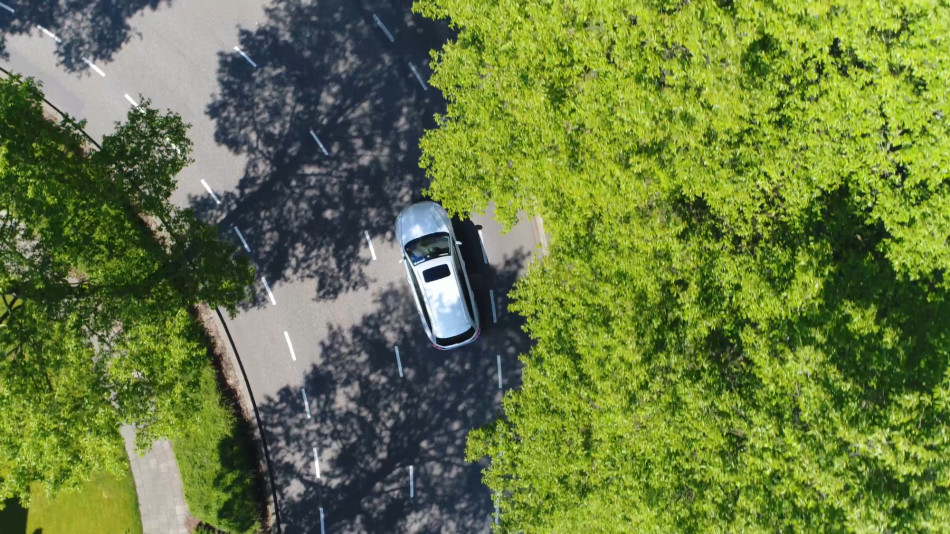BUILDING A BETTER MOBILITY FUTURE: FIA ANNOUNCES PROJECTS TO BE SUPPORTED BY THE FIA SUSTAINABLE MOBILITY PROGRAMME
In 2022, the FIA Sustainable Mobility Programme — an annual grant programme for sustainable, accessible and inclusive mobility initiatives — will support a total of 14 projects among which 11 will be led by FIA Members and three by the FIA Mobility Division.

For the first time this year, the FIA Sustainable Mobility Programme was expanded to better support FIA Members’ initiatives. Following a call for applications launched in February and open to all FIA Mobility Members, 11 Member-led projects were selected in two categories: Advocacy and Innovation.
In total, seven Advocacy projects will be supported:
- As part of the “let’s Drive Green!” project, the Bosnia and Herzegovina Automobile Club (BIHAMK) will organise a roundtable gathering electric mobility stakeholders with the aim to develop a proposal of measures to enable more motorists to buy and use electric vehicles in the country.
- The Automóvil Club de Uruguay (ACU) will organise an “Electric Vehicle Forum” promoting decarbonisation policies in the country and raising awareness among consumers about the benefits of sustainable mobility.
- The first “Croatian Survey of Attitudes About Electric Vehicles” will be conducted by the Hrvatski Autoklub (HAK). This nationwide survey’s objectives will be, among others: to define the basic obstacles faced by drivers when they consider buying an electric vehicle; to determine how well-informed consumers are about the future of mobility and understand what their information sources are; and to assess their general attitudes towards the climate change challenge and sustainable mobility options.
- The Automóvil Club de Guatemala (ACG) will also promote clean mobility in its country by creating a campaign encouraging consumers and mobility stakeholders to reduce pollution, taking actions to promote the benefits of sustainable mobility, and informing consumers on safe, clean, affordable and inclusive mobility.
- With ecoMobility 2022, the Magyar Autoklub (MAK) will raise awareness of sustainable mobility among Hungarian road users through an edutainment campaign and an event presenting sustainable transport alternatives with the aim to broaden consumers’ horizons.
- Through its initiative “Applying extended producer responsibility (EPR) principles to automotive waste: emphasis on spent tyres”, the Automobile and Touring Club of Nigeria (ATCN) intends to raise awareness of the recycling of tyres and the circular economy around it.
- Another project called “Development of Legislation on Used Vehicle Tyres Management in Uzbekistan” will address the challenge of efficiently recycling tyres. The National Automobile Club of Uzbekistan (NACU) will produce and publish policy papers on the issue to generate public discussion before organising a roundtable on this important topic.
The promotion of innovation in technology but also in policies is critical when it comes to improve the sustainability of mobility. The programme will therefore support four FIA Member-led projects in that field:
- The Automóvil Club de Chile (ACCHI) plans to create two learning modules for electric bus drivers to teach them best practice in terms of energy consumption when charging the vehicles and thus help reduce the over consumption of energy.
- The Österreichischer Automobil- Motorrad- und Touring Club (ÖAMTC) will launch a project entitled “Emission reduction through modern roadworthiness testing - accessibility of the relevant OBD data and verification of the CO2 and NOx ratio”. The aim of the initiative will be to develop a testing system for the vehicle emissions and then make it a viable test using On-Board Diagnostic (OBD) and the On-Board Fuel Consumption Meter (OBFCM).
- The Automóvil Club del Ecuador (ANETA) aims to foster a faster introduction of low carbon transport in the country by first showing the example with the Club reducing its carbon footprint thanks to the use of electric vehicles (EVs) and supporting its members in their transition towards EVs. The Club will also contribute to increasing EV adoption in Ecuador with the installation of one fast charging station in a main city of the country, and create capacities both at the government level and at the community level — through training, helping to build user confidence in EVs.
- With the conduct and publication of a large-scale survey of the electric vehicle users and their experience, the Canadian Automobile Association (CAA) will amplify the EV consumers’ voice and advocate with the government for better policies.
The FIA Sustainable Mobility Programme will also support the further development of three projects led by the FIA Mobility Division:
- The Life Cycle Assessment (LCA) project estimates the total Greenhouse Gas (CO2, N2O, CH4) emissions and primary energy use of a vehicle over its entire life cycle, including its construction and logistics, lifetime use and recycling. This project will be expanded to Latin America and India in 2023 along with Green NCAP. Consumers from these regions will have access to LCA information in addition to Green NCAP’s comprehensive test information and ratings.
- The Smart Parking for Disabled Drivers (ParkDots) project implemented by the Hrvatski Autoklub (HAK) in partnership with Park Dots (T-Telekom) and the Croatian city of Sisak with the support of the programme will receive funds to ensure the maintenance of the ‘smart’ infrastructure put into place to assist disabled drivers to find empty parking spaces, especially following the earthquake that took place in 2020.
- The cost of motoring and congestion have become critical fields of interest for FIA Clubs and led to an increasing need for policy support and knowledge. To address that concern, the FIA Sustainable Mobility Programme will support the undertaking of a feasibility study. This study will focus on pilot countries from all four FIA Mobility Regions to ensure that the diversity of economies is taken into account. It will establish micro-economic theoretical models and develop two specific indicators to measure purchasing, maintenance and ownership costs, taxes, linkage with income and alternative to the automobile. The study will provide an accessible tool for FIA Members, giving them orientations on how to approach such a complex issue.

 Facebook
Facebook Twitter
Twitter

